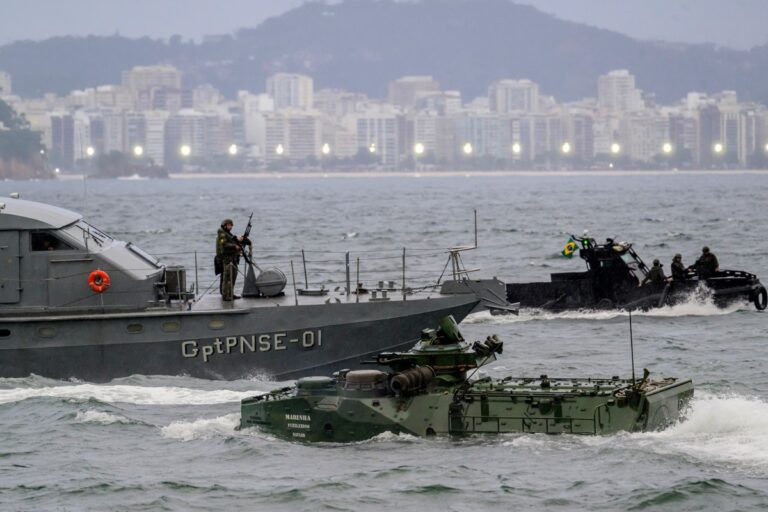By Peter Omopo
Rio de Janeiro | July 5, 2025 — Leaders of the BRICS nations are poised to issue a collective rebuke of U.S. trade policies under President Donald Trump as they convene in Rio de Janeiro for the 2025 summit of the emerging economies bloc, beginning Sunday.
Diplomatic sources close to the summit negotiations say representatives from the 11-member group — led by Brazil, Russia, India, China, and South Africa — are drafting a declaration that will criticize what they describe as Washington’s “unfair and destabilizing” tariffs, which have sent ripples through global markets.
Although the final communiqué is unlikely to mention the United States or President Trump by name, observers expect the language to amount to a pointed critique of his administration’s aggressive trade measures.
“The summit will likely strike a cautious tone,” said Marta Fernandez, director of the BRICS Policy Center at Pontifical Catholic University in Rio. “Explicitly naming the U.S. is off the table, especially for China, which is wary of reigniting tensions following recent efforts to ease its tariff standoff with Washington.”
Since returning to office in January, Trump has threatened a fresh wave of tariffs on both allies and adversaries. According to reports, letters are expected to be sent to trade partners as early as Friday, notifying them of revised tariff rates to take effect on July 9.
The looming threat of protectionism is expected to dominate the summit’s economic discussions, with BRICS nations — representing roughly half of the world’s population and 40% of global GDP — calling for a more equitable and rules-based trade environment.
High-Profile Absences Undermine Summit Optics
Despite the high stakes, the political weight of the summit has been diminished by the absence of key leaders.
Chinese President Xi Jinping is skipping the BRICS gathering for the first time in his 12-year tenure. Analysts suggest his absence may be linked to recent high-level meetings with Brazilian President Luiz Inácio Lula da Silva in Beijing, and an effort to avoid diplomatic entanglements amid tense U.S.-China relations.
“Xi’s decision to stay away may simply be strategic,” said Ryan Hass, a senior fellow at the Brookings Institution and former China director at the U.S. National Security Council. “He just hosted Lula, and this may not be the moment to stir the waters further with the U.S.”
Also missing in person is Russian President Vladimir Putin, who continues to face an international arrest warrant over alleged war crimes. The Kremlin confirmed that Putin will join the summit via video link.
India’s Prime Minister, meanwhile, will attend as a guest of honor, which some analysts suggest may also have influenced Xi’s decision to stay away.
Global South Unites Against Economic Headwinds
Founded two decades ago as a platform for fast-growing economies, BRICS has evolved into a vehicle for emerging nations seeking alternatives to Western-dominated global institutions.
This year’s summit comes amid growing dissatisfaction with what member states describe as economic marginalization and geopolitical pressure from the West — particularly the United States.
The joint statement under development is expected to emphasize the need for economic sovereignty, investment in multilateral cooperation, and a rejection of protectionist trade policies.
While the leaders aim to avoid direct confrontation with Washington, the message will be unmistakable: the Global South is pushing back against what it sees as an increasingly hostile and unequal international economic order.

